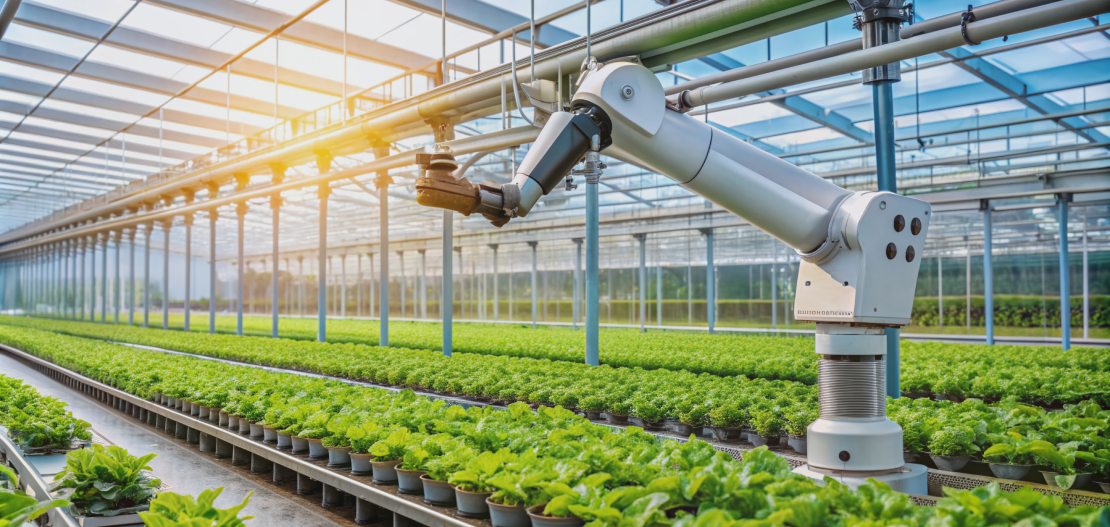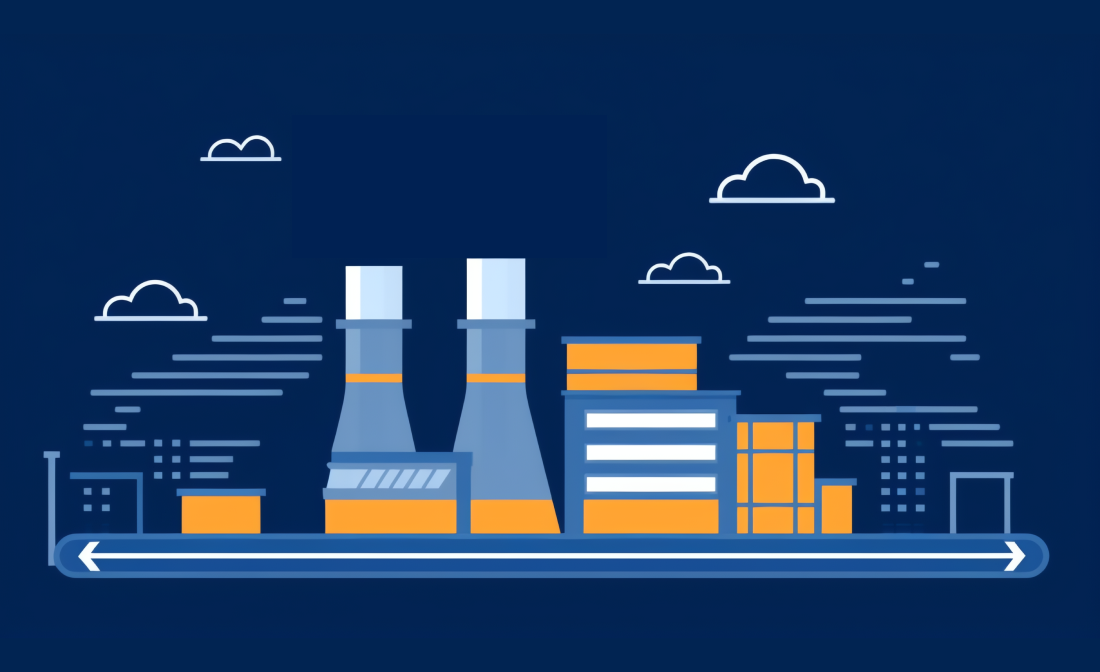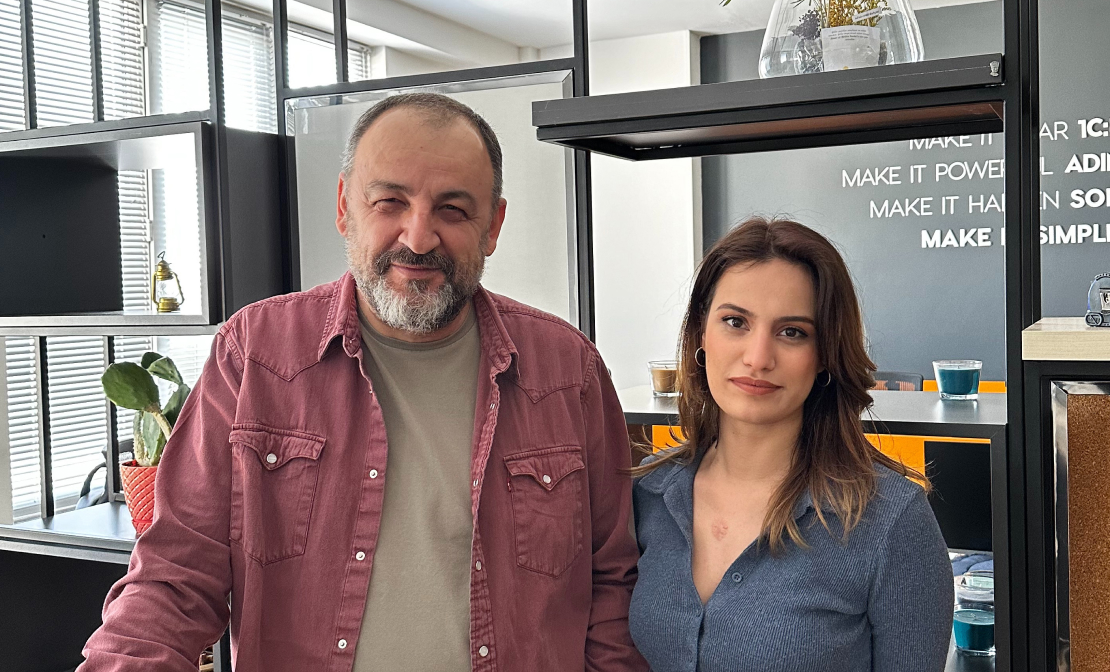The global community is concerned about the issue of hunger. By 2050, there is a plan to significantly reduce the number of people worldwide who suffer from hunger. This goal is to be achieved not by expanding arable land, as most of the land is already in use, but by enhancing productivity. Increasing productivity requires the adoption of new technologies since precise analysis and calculations are impossible without digitalization.
In Europe, the major themes at the largest plant cultivation and animal husbandry exhibitions over the last 3-4 years have been digitalization and the reuse of resources, indicating a growing interest in these topics. A recent study titled “A Cross-Sectional Analysis of the Relationship between Digital Technology Use and Agricultural Productivity in EU Countries” shows that “digital technologies can significantly enhance efficiency, sustainability, and competitiveness in the agricultural sector.”
In this article, we will explore the state of digitalization in agriculture with Irina Sulimenko, CEO at WA-KAC Group GmbH and how the implementation of ERP systems can enhance efficiency.
Advancements in agricultural technology have significantly leaped forward compared to the start of the century. The adoption of agricultural technology, for example, can result in cost savings from 15% and increases in crop yields of from 13%. This has transformed how resources are managed and has optimized planting and harvesting operations, leading to both financial savings and enhanced production efficiency.
In greenhouse operations, a wide array of sensors and meters are now standard. These tools provide real-time data visible on monitors, such as crop growth rates, ambient temperatures, and even automated systems for ventilation and irrigation. This technology allows for precise control of the growing environment, optimizing conditions for each plant species and significantly reducing waste and labor costs.
Satellite imagery is also increasingly utilized to analyze planting areas, enabling farmers to make informed predictions about the optimal times for harvesting and the expected quality and quantity of the crop. This use of satellite data helps in planning and can dramatically improve the accuracy of yield forecasts.
However, a major issue remains in that while hardware automation is well-developed, there are still very few accessible software solutions for accounting and analysis in agriculture. Some farms are implementing complex systems like SAP, but these solutions are often expensive, complicated, and time-consuming to deploy. There's a clear need for more user-friendly, cost-effective software that can integrate seamlessly with the existing agricultural technologies to streamline operations and maximize the potential benefits.
Implementing professional ERP systems integrated with sensors offers significant advantages. Firstly, it reduces the need for manual labor, which is particularly relevant given the current shortage of skilled professionals in the market. Secondly, it ensures the accuracy of data, helping to minimize errors associated with human factors. This also leads to reduced personnel costs and lower expenses on wages.
However, there is a flip side to consider. We have seen cases where agricultural companies sometimes choose to stick with manual processes instead of new equipment and automation to preserve jobs. Many are concerned that such systems and technologies will replace human workers. Nonetheless, the transition to automation seems inevitable because automated production is more competitive.
Thus, it is essential to find ways to balance these risks. For example, companies could invest in training programs for their workforce to handle new technologies, creating new roles that support and enhance automated processes rather than replace them. This approach not only preserves jobs but also improves the skill sets of employees, making the workforce more versatile and adaptive to technological advancements.
In Kazakhstan, the development of both hardware and software for agricultural applications is progressing, albeit at different rates. While the adoption of sensor technology isn't as widespread as in Europe due to higher costs, software development for accounting and integration with these sensors is more advanced. Kazakhstan has unique expertise in integrating sensor data with accounting systems, a practice that is still not common in many parts of Europe.
A good example of this innovative approach is KAS Consulting, a Kazakhstan company that has recently extended its operations to Austria under the name WA KAC Group GmbH. They also have plans to expand further into other European countries where agricultural automation is in demand.
WA KAC has developed a robust agricultural accounting solution tailored for enterprises involved in crop farming, livestock breeding, poultry farming, and the processing of agricultural products. This software product, based on the "Accounting for Kazakhstan" configuration of the "1C:Enterprise" system, is designed to handle every accounting task a farm might face, from processing primary documents to generating statutory reports.
The software also introduces the concept of "technological operations," where all documentation related to the registration of completed work accumulates data according to typical technological operations. This feature allows for meticulous control over costs related to production preparation across different fields, crops, and cost items.
The technological process in crop production includes several main complexes of work: pre-sowing soil preparation, sowing (planting), plant care, and harvest collection. Each of these complexes consists of a large number of specific tasks, and the software manages the accounting of costs in crop production, the organization of accounting records for crop output, and the management of production inventories.
Moreover, WA KAC also offers a range of IT solutions and services, including industry audits, IT solution development, implementation, training, hardware integration, and maintenance services.
In addition to its strong focus on agriculture, WA KAC has competencies in implementing business automation software for companies across various industries, ensuring efficient and streamlined operations for diverse business needs. Incidentally, WA KAC is now working on hotel automation in Austria, demonstrating a deep understanding of business processes regardless of market segment.
Currently, there are numerous major players in the global agricultural sector, encompassing manufacturers, sellers of agricultural machinery, and developers of various management and accounting systems. Even organizations that might seem unrelated to agriculture, such as Raiffeisenbank, have dedicated a separate division that focuses solely on agricultural endeavors. This clearly indicates that agriculture is an area experiencing significant technological advancements.







